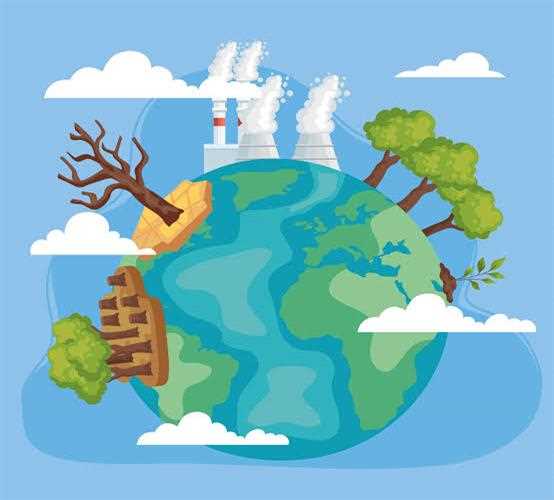The planet is facing numerous environmental challenges that require urgent attention and concerted efforts towards conservation and sustainability. Here are some of the major environmental issues and the corresponding efforts being made towards conservation and sustainability:

Major Environmental Issues:
1. Climate Change: Climate change is one of the most pressing global environmental issues. Rising greenhouse gas emissions from human activities contribute to global warming, leading to rising temperatures, sea-level rise, extreme weather events, and ecological disruptions.
2. Loss of Biodiversity: The loss of biodiversity is a critical concern. Habitat destruction, deforestation, pollution, and climate change threaten ecosystems and species worldwide. This loss of biodiversity can have severe consequences for ecosystem services and disrupt the delicate balance of nature.
3. Air and Water Pollution: Pollution of air and water remains a significant environmental challenge. Emissions from industrial activities, vehicle exhaust, and improper waste disposal contribute to air pollution, impacting human health and ecosystems. Water pollution from industrial discharges, agricultural runoff, and plastic waste poses risks to aquatic life and human well-being.
4. Deforestation: Deforestation is a major environmental issue, particularly in tropical regions. Clearing forests for agriculture, logging, and urbanization leads to habitat loss, carbon emissions, soil erosion, and disruption of local and global ecosystems.
5. Resource Depletion and Waste: The unsustainable extraction and consumption of natural resources contribute to their depletion. Overfishing, excessive water usage, and the generation of large volumes of waste, including plastic waste, put a strain on ecosystems and contribute to pollution.
Efforts towards Conservation and Sustainability:
1. International Agreements and Policies: International agreements like the Paris Agreement on climate change and the Convention on Biological Diversity provide frameworks for global cooperation in addressing environmental challenges. Governments are implementing policies and regulations to promote sustainable practices, reduce emissions, and protect ecosystems.
2. Renewable Energy Transition: The shift towards renewable energy sources like solar, wind, and hydropower is gaining momentum. Countries and companies are investing in renewable energy infrastructure and technologies to reduce reliance on fossil fuels and mitigate climate change.
3. Conservation of Protected Areas: Conservation efforts focus on establishing and managing protected areas, such as national parks and wildlife sanctuaries. These areas help preserve biodiversity, protect critical habitats, and promote sustainable use of natural resources.
4. Sustainable Agriculture and Forest Management: Sustainable agricultural practices, such as organic farming, agroforestry, and precision agriculture, aim to minimize environmental impact, conserve soil health, and reduce the use of chemicals. Sustainable forest management practices, including reforestation and responsible logging, help protect ecosystems and promote biodiversity.
5. Circular Economy and Waste Management: The transition towards a circular economy aims to minimize waste and maximize resource efficiency. Recycling programs, waste reduction initiatives, and the promotion of eco-friendly products and packaging are part of efforts to manage waste and reduce pollution.
6. Environmental Education and Awareness: Education and awareness campaigns play a crucial role in promoting sustainable practices and fostering environmental stewardship. Educational programs, public outreach initiatives, and advocacy efforts help raise awareness about environmental issues and encourage individual and collective action.
Addressing these environmental challenges and promoting conservation and sustainability requires a collective effort involving governments, businesses, communities, and individuals. It demands a transition towards sustainable practices, the adoption of clean technologies, the protection of ecosystems, and the promotion of responsible consumption and production patterns. By working together, we can protect the environment, preserve biodiversity, and ensure a sustainable future for generations to come.